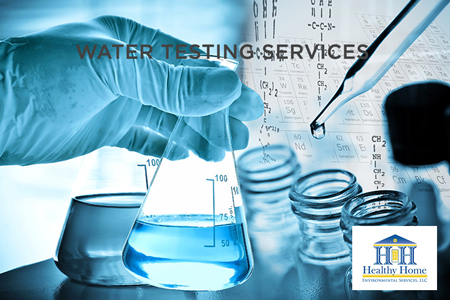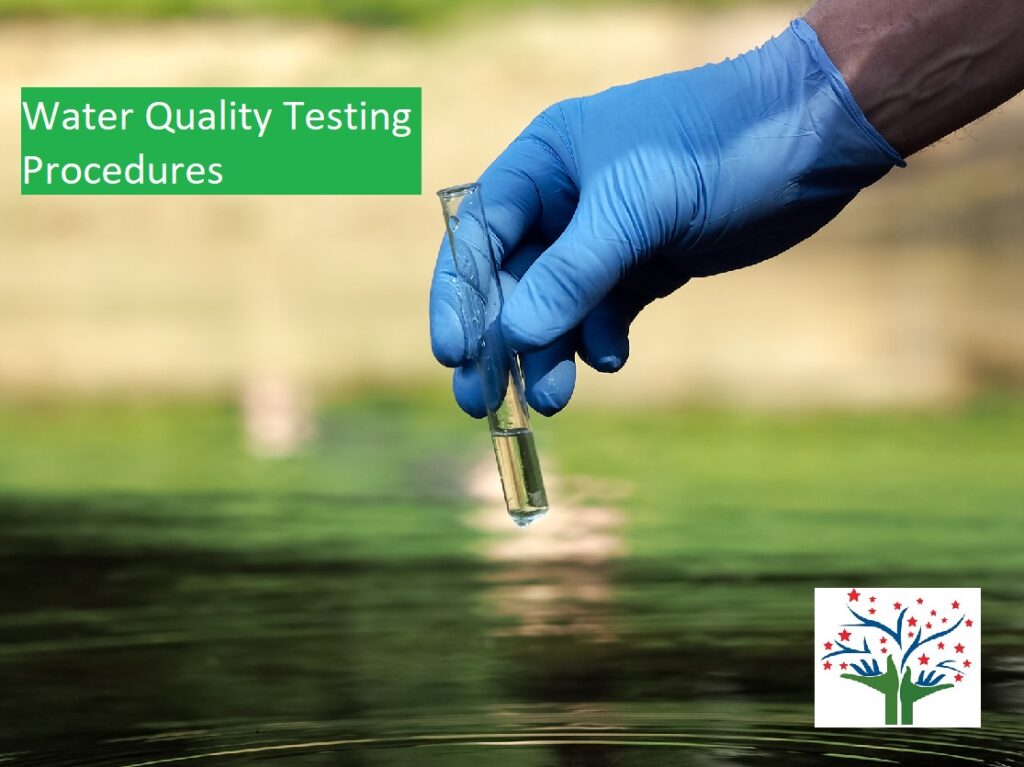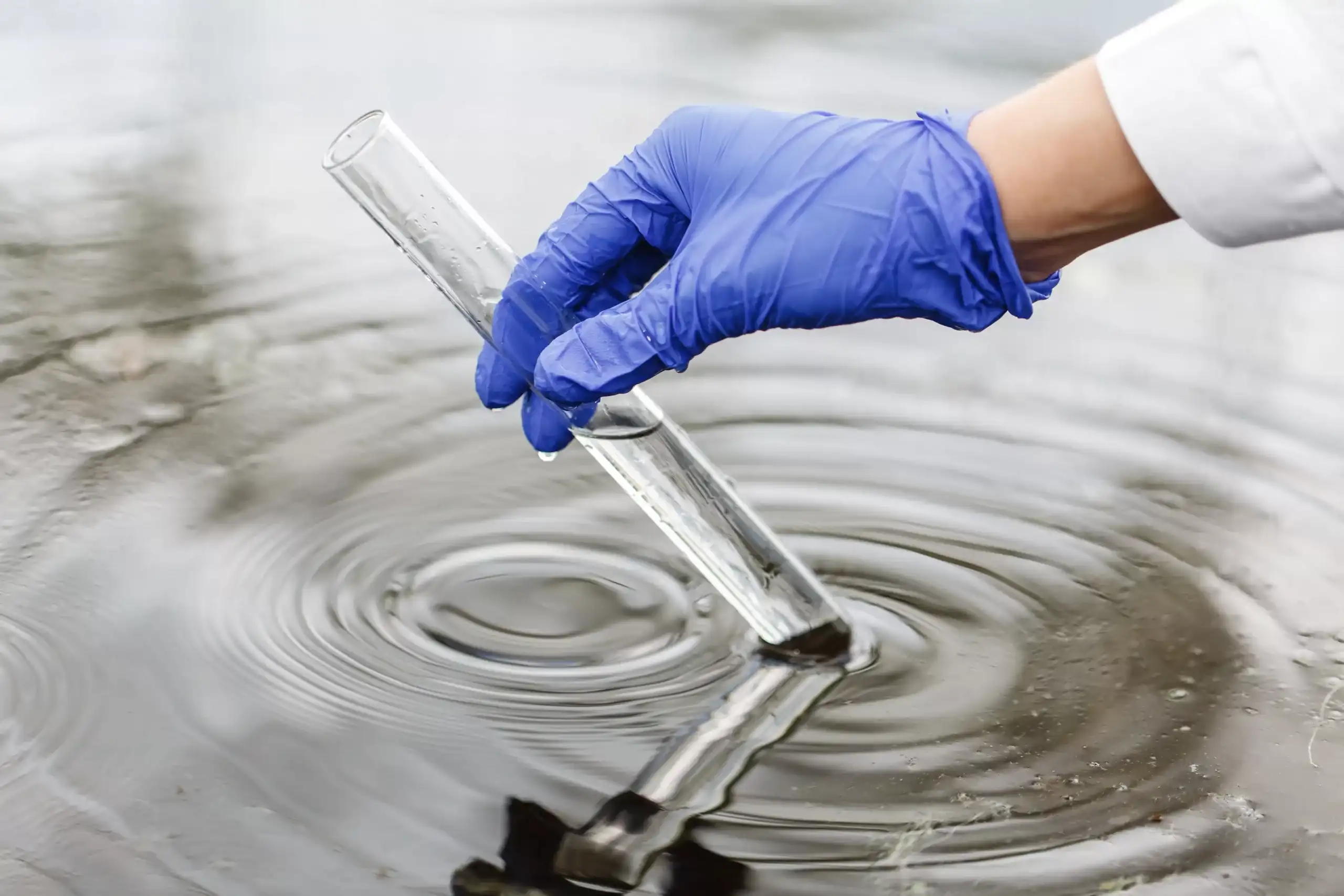Discover Reliable Well Water Testing Services for Your Assurance
Discover Reliable Well Water Testing Services for Your Assurance
Blog Article
Learn How Water Testing Can Spot Pollutants and Safeguard Your Household's Well-being
Comprehending the relevance of water screening is crucial for securing your household's wellness, as our water supply can nurture hidden dangers. By exploring the auto mechanics of water testing, one can reveal the unseen dangers prowling in seemingly excellent water sources.
Relevance of Water Testing
Identifying the vital role water plays in maintaining life, the relevance of water testing can not be overstated. Making sure that water is free from dangerous substances is crucial for keeping healthy and balanced communities and communities. Water Testing Service.
Water screening functions as a proactive procedure to determine potential risks that may jeopardize water top quality. Through systematic analysis, it assists discover physical, chemical, and organic criteria that can present threats to human health and wellness. Normal testing permits for the very early discovery of concerns, helping with prompt treatments to stop prevalent contamination and associated health issue.
Moreover, water screening supports governing conformity, making sure that water providers fulfill established safety and security criteria and standards established by governmental authorities. It promotes transparency and liability, constructing public trust fund in the water system. In addition, testing supplies valuable information that informs water management strategies, making it possible for sustainable use and conservation of this priceless source.
Basically, water testing is an essential tool that safeguards public wellness, makes certain governing adherence, and advertises the sustainable monitoring of water resources. Its significance in safeguarding both people and neighborhoods can not be underestimated.
Usual Water Contaminants
Among the various aspects that can endanger water quality, typical water pollutants consist of an array of physical, chemical, and organic materials that pose considerable dangers to human health and wellness and the setting. Physical impurities typically entail debris or natural materials suspended in water, which can impact clearness and taste.
Biological impurities, largely microorganisms, infections, and protozoa, develop from animal and human waste entering water supply. Virus such as E. coli, Giardia, and Cryptosporidium are infamous for causing gastrointestinal diseases and can be especially hazardous to young kids, the elderly, and those with endangered body immune systems. Nitrites and nitrates, frequently stemming from fertilizers, posture an additional wellness threat, specifically to babies, possibly causing conditions like methemoglobinemia or "blue infant disorder."
Additionally, arising impurities, consisting of drugs and individual care items, have raised concerns as a result of their persistence and unidentified long-lasting effects. Understanding these impurities is important for carrying out effective water therapy methods and making certain risk-free drinking water.
Just How Water Screening Functions
Comprehending the spectrum of contaminants in water emphasizes the significance of reliable screening techniques to guard public health and wellness. Water testing is a systematic procedure created to determine and evaluate numerous contaminations that can present risks to human health and wellness. This includes a collection of analytical treatments that find contaminants such as microorganisms, hefty metals, organic chemicals, and various other pollutants. The testing procedure typically starts with example collection from the water source, making sure that samples are depictive and uncontaminated during the collection procedure.
When examples are collected, they undergo lab evaluation using various methods. Chemical screening commonly entails spectrometry or chromatography, both of which can identify and measure details chemical compounds. For microbiological testing, techniques such as membrane layer filtering or enzyme substratum examinations are utilized to spot pathogenic microorganisms. Additionally, physical attributes like pH, turbidity, and shade are assessed to offer insight into the general top quality of the water.
The accurate approaches utilized in water testing depend on the particular pollutants of worry and the water's meant use. By continually applying these strenuous testing procedures, researchers and public health and wellness authorities can make certain the safety and top quality of water, consequently shielding neighborhoods from potential wellness hazards.
Selecting the Right Examination
The initial step is examining the water resource-- be it metropolitan, well, or surface water-- as each has distinct risks. Community water may call for testing for disinfectant by-products, while well water may require testing for nitrates, microorganisms, and heavy metals.
Following, consider recent events and ecological elements. Close-by farming tasks may necessitate testing for herbicides and chemicals, whereas commercial zones can call for checks for chemical contaminants. Furthermore, any kind of modifications in water smell, preference, or look need to prompt particular testing for common pollutants like lead, chlorine, or organic virus.
Expert water testing Homepage services provide detailed sets that target a variety of potential contaminants. These packages often align with requirements set by the Epa (EPA) or neighborhood health departments. For a more customized method, speaking with a water high quality expert can give insights into which specific examinations are required based on local problems and private health needs, making sure the protection of your household's wellness.

Maintaining Water Security

In enhancement to screening, correct maintenance of water supply plays a vital role. This includes checking and servicing plumbing systems, tank, and septic systems to stop leakages or backflow that can present impurities - Well water testing services. Using water filtration systems designed to deal with details local issues can even more protect versus pollutants, supplying an extra layer of protection
Public understanding and education and learning are similarly essential in maintaining water safety. Neighborhoods ought to be informed concerning possible risks related to regional water sources and the essential actions to mitigate them. Urging public involvement in water safety campaigns promotes a collective duty that enhances general performance.
Inevitably, a detailed method that incorporates routine testing, system upkeep, and neighborhood involvement is necessary in securing water quality. By doing so, family members can be guaranteed of clean and safe water, securing their health and wellness and wellness.

Verdict
Routine water testing is necessary for recognizing contaminants such as bacteria, heavy steels, and chemicals that posture wellness risks. By evaluating water samples, unseen risks can be found, ensuring the provision of safe drinking water.
Recognizing the relevance of water screening is crucial for protecting your household's health and wellness, as our water supply can harbor hidden risks.Water screening serves as a positive measure to determine prospective risks that may compromise water quality.Additionally, Check Out Your URL water testing supports Go Here governing conformity, guaranteeing that water providers meet well-known safety and security requirements and guidelines set by governmental authorities. Community water could call for testing for disinfectant by-products, while well water may require testing for nitrates, germs, and heavy steels.
Normal water screening is an important part in preserving the quality of water resources, allowing prompt interventions prior to pollutants reach unsafe levels.
Report this page